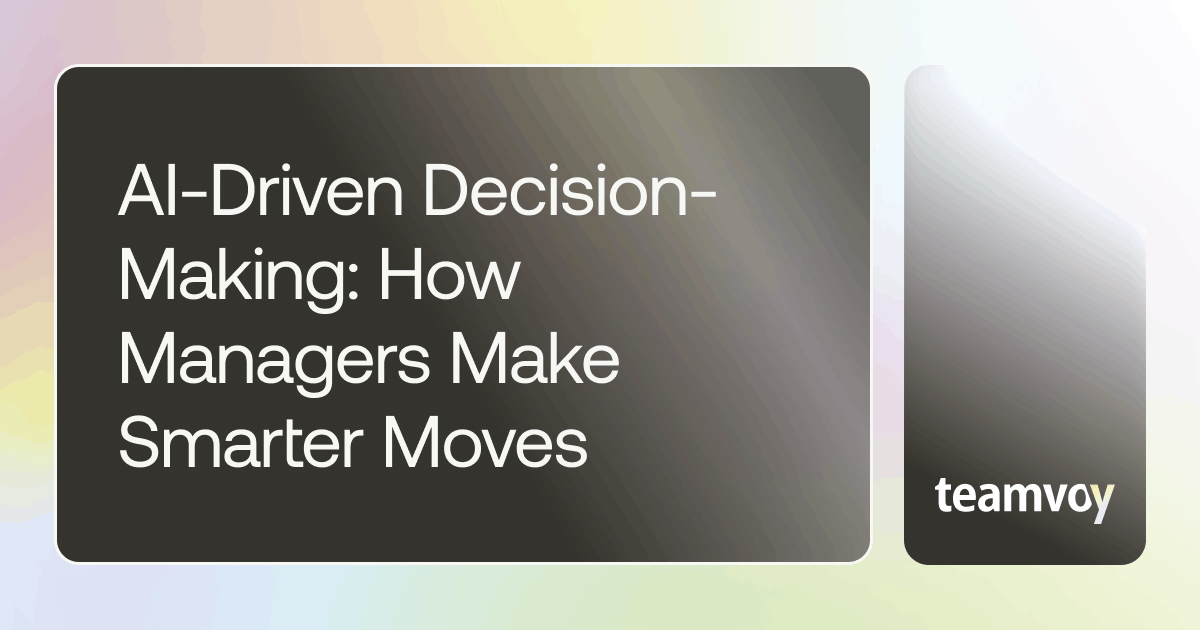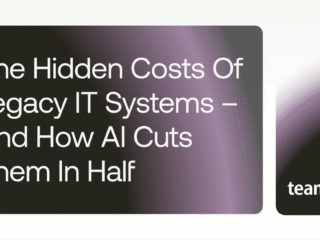Posted:
Updated:
Home → Blog →AI-Driven Decision-Making: How Managers Make Smarter Moves
By 2026, over 70% of managers will depend on AI-driven decision-making to guide strategy and performance (Gartner). Yet, many leaders still face an old problem—too much data, too little clarity. The challenge isn’t access to information, but transforming it into confident, timely actions.
This guide explores how AI decision support systems, AI project management tools, and data-driven decision-making are reshaping business leadership. You’ll learn practical ways to integrate artificial intelligence in management and build a culture that supports smarter, faster decisions.

Why Implement AI in Business Management
Artificial intelligence in management helps leaders use data more effectively. It strengthens forecast accuracy, improves resource allocation, and minimizes risk.
Key advantages:
- Faster analysis and reporting through automation
- Clearer visibility into team performance
- More reliable predictions with real-time data
AI turns complex datasets into actionable insights, giving managers a stronger foundation for every choice.
Principles for a Successful AI Adoption Strategy
Introducing AI into management requires more than installing software – it means adjusting leadership thinking.
1. Start with Clear Objectives
Define measurable goals: forecast accuracy, budget efficiency, or delivery speed. Without a target, AI remains just another tech feature.
2. Combine Data with Human Judgment
AI identifies patterns; humans provide perspective. Pair analytics with experience to create decisions that are both logical and meaningful.
3. Prioritize Data Quality and Transparency
Poor data leads to poor outcomes. Set clear data ownership and communicate how AI-generated recommendations are formed.
4. Build Team Confidence and Learning
Adoption succeeds when people trust AI tools. Hold training sessions, share success stories, and reward data-driven behavior.
5. Monitor and Evolve Continuously
Treat AI systems as living tools – measure performance, refine models, and adapt as business needs shift.

How AI Decision Support Systems Empower Managers
AI decision support systems (DSS) combine analytics, forecasting, and visualization to guide managers toward better outcomes.
Popular examples include:
- Asana AI dashboards: predict project delays
- Monday.com Work Intelligence: suggests task priorities
- Notion AI: summarizes reports and generates insights
AI decision support systems assist managers in several practical ways. They can identify potential project bottlenecks early on, allowing leaders to act before small issues escalate. These intelligent tools make it possible to simulate multiple “what-if” scenarios, supporting data-driven decision making and reducing uncertainty. In addition, AI project management tools enable accurate forecasting of team capacity and resource requirements, ensuring that workloads remain balanced and timelines realistic. By comparing performance outcomes across various projects, leaders gain a clear view of what strategies deliver the best results.
By combining artificial intelligence in management with human experience and judgment, managers practice truly AI-driven decision-making – faster, more confident, and grounded in evidence.
Real-World Impacts of AI-Driven Decision-Making
Organizations that integrate AI into management report tangible performance improvements:
- 65% faster project forecasting and reporting (AI analytics dashboards)
- 40–50% fewer resource misallocations through predictive planning tools
- 35% better decision accuracy using scenario modeling
- 30% fewer operational risks with real-time alerts
- 3x growth in managerial efficiency from AI-supported prioritization
Source: McKinsey, 2024.
Key Takeaways and Next Steps for Data-Driven Decision Making
- AI-driven decision-making strengthens – not replaces – human intelligence.
- Success depends on clear objectives, quality data, and continuous learning.
- AI adoption is both a strategic and cultural shift.
- The best managers combine insight, empathy, and analytics.
Start small: Integrate one AI project management tool and measure its results.







